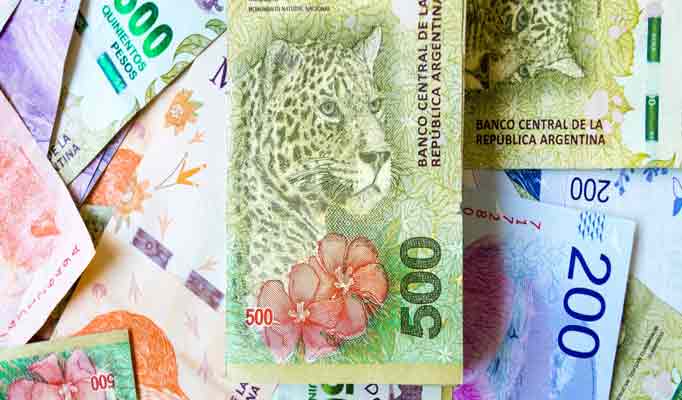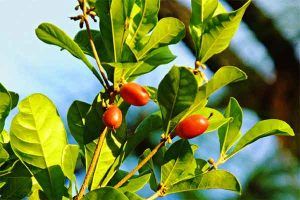
By Mizanur Rahman Himadri, Jessia Islam and Imtiaz Ahmed
Bangladesh should explore business potentials with Argentina to the maximum level as the South Asian country should leave no stone unturned to increase export to the Latin American country, said business leaders, policy makers and diplomats.
Though Argentina’s export to Bangladesh stands at some 800 million US dollars, Bangladesh’s exports to the Latin American country stood at only 15440006.78 US dollars (15 million US dollars) during July-June 2022-23 fiscal year. Bangladesh’s exports to Argentina stood at 5580742.6 US dollars during the July-October period of the 2023-24 fiscal year.
As Argentina has opened its mission in Dhaka, business leaders of Bangladesh should work hard to increase trade with the Latin American country, particularly to boost readymade garments to the Latin American country, said a leader of the Federation of the Bangladesh Chamber of Commerce and Industry (FBCCI) while talking to this correspondent on Sunday.
According to available information, Bangladesh, Pakistan, India and China are primarily exporters of readymade garment to Argentina. However, export of Bangladesh is not significant.
President of Bangladesh Chamber of Industries (BCI) and Charmin & Managing Director of Evince Group Anwar-ul Alam Chowdhury Parvez while talking to this correspondent said that Bangladesh should explore new market in Argentina, as the government give special incentives on export to non- traditional markets.
He said that Bangladesh should hold talks with Argentine counterparts to explore new business opportunities.
Anwar-ul Alam Chowdhury Parvez, also a former President of the Bangladesh Garment Manufacturers and Exporters (BGMEA), said business leaders should have regular contacts with stakeholders concerned in Dhaka and Buenos Aires to tap existing potentials.
Meanwhile, Argentina has agreed to prioritise Bangladesh’s imports of soybeans and wheat from that country.
On the other hand, Bangladesh exported products worth $9.52 million in the last fiscal and $8.84 million from July to December of the current financial year.
At present, Bangladeshi government employees can travel to Argentina without visas. In future, ordinary citizens can also get the benefit of on-arrival visas.”
Argentina opened its embassy in Dhaka on 27 February to improve and develop relations between the two countries.
The two countries on Thursday signed a Memorandum of Understanding (MoU) in this regard, marking a significant step towards strengthening agricultural ties.
The agreement, signed for the first time, also includes advanced cooperation in agricultural technology and management, according to the Ministry of Agriculture.
Agriculture Minister Muhammad Abdur Razzaque represented Bangladesh, while Argentine Economic Minister Sergio Tomás Massa had previously signed the agreement. In a ceremony attended by Argentine Ambassador to Dhaka Marcelo Carlos CESA, Agriculture Minister Razzaque formalised the agreement.
A press release from the Ministry of Agriculture outlined key areas of collaboration identified in the MoU. These include the implementation of climate-smart technologies, soil management, irrigation practices, post-harvest crop loss prevention, adoption of good agricultural practices (GAP), and the development of marketing and value chains for agricultural products. Notably, the MoU also ensures Bangladesh’s priority in soybean and wheat imports from Argentina.
Agriculture Minister Razzaque said, “This MoU has created an opportunity to explore another part of the world. Argentina, being a country rich in natural resources, is highly advanced in agriculture and agricultural technology. This agreement will facilitate importing wheat, soybean, and various animal feeds from Argentina.”
Highlighting the importance of soybeans in poultry protein production, Minister Razzaque mentioned that Bangladesh annually imports around $2 billion worth of soybeans. With Argentina being a leading producer of soybeans, the MoU is expected to enable Bangladesh to secure these imports at favourable prices.
The minister also mentioned potential export opportunities for Bangladesh, including mangoes, pineapples, potatoes, and chips to Argentina The agreement calls for the processing and export of a variety of agricultural products to Argentina. Moreover, assistance will be sought from Argentina in the fields of biotechnology and nanotechnology.
Argentine Ambassador Marcelo Carlos CESA said, “There are many opportunities for cooperation between the two countries in the field of agriculture. The MoU has further increased the opportunity to work in those areas.”
With both pipelines functional, the BPC would be able to transport oil directly from other vessels to the storage tanks and save around Tk 800 crore a year, according to the officials of the state-owned petroleum product supplier.
Meanwhile, Bangladesh Ambassador to Brazil and accredited to Argentina Sadia Faizunnesa held talks with Argentine Foreign Minister Santiago Andres Cafiero in Buenos Aires this year.
Meanwhile, Bangladesh has requested Argentina to establish an edible oil factory in one of the country’s economic zones and to lower tariffs to facilitate the entry of Bangladeshi products into its market.
Dhaka has also urged the Latin American nation to withdraw the anti-dumping duty on Bangladeshi jute products.
Commerce Minister Tipu Munshi made the requests while signing a Memorandum of Understanding (MoU) with Argentine Foreign Minister Santiago Andres Cafiero this year.
The agreement, signed at the secretariat in Dhaka, aims to increase bilateral trade between the two nations.
Sources said that the Argentine foreign minister promised to consider the proposals from Bangladesh positively.
After the meeting, Tipu Munshi told reporters, “There are opportunities for better trade with Argentina. There is also scope to increase exports, especially of RMG items. We are hopeful that this MoU will help increase bilateral trade to $1-1.5 billion within the next two years.”
Meanwhile, Argentina’s foreign minister said that the friendship between the two countries based on football has now been transformed into business and other relations. This MoU will help in that regard.
Commerce Secretary Tapan Kanti Ghosh said, “Based on today’s agreement, another deal will be signed between the Trading Corporation of Bangladesh (TCB) and the relevant Argentinian office a few days later. This will allow TCB to make direct imports from Argentina.”
Commerce ministry officials said that the main purpose of signing this MoU is to make Free Trade Agreements (FTA) or Preferential Trade Agreements (PTA) with other countries, including Argentina and other members of the Southern Common Market, commonly known as Mercosur.
Bangladesh is giving importance to FTAs and PTAs to maintain export momentum after transitioning from Least Developed Country (LDC) status, they said.
Officials said that recently the secretary of commerce, chairman of TCB and president of FBCCI visited Mercosur countries, including Brazil, Argentina, Uruguay and Paraguay.
They found that there is a chance of exporting Bangladeshi goods, such as garments, jute and leather products, generic drugs, pharmaceutical products, ceramic and plastic, home textiles, agricultural and processed agricultural products, shrimp, frozen food, bicycles, refrigerators, air conditioners, light engineering products, to these countries.
However, Bangladeshi products face tariffs ranging from 8% to 35% when entering the Argentine market. In addition, there are also barriers such as anti-dumping policies.
At the meeting, the commerce minister informed the Argentine foreign minister that Bangladesh is the only Least Developed Country (LDC) that produces 97% of its demand for medicines domestically. He also mentioned that Argentina could benefit from importing drugs from Bangladesh.
The minister expressed interest in importing animal or vegetable fats, soybean oil, sunflower oil, various fruits and vegetables, dairy products, bird’s eggs, natural honey and wheat from Argentina.
Meanwhile, Bangladesh imports soybean oil, wheat and sugar with import bills worth several billion US dollars.
Bangladesh is largely dependent on Indian wheat and sugar and Brazilian soybean, sugar and wheat.
GDP per Capita in Argentina is expected to reach 12596.00 USD by the end of 2023, according to Trading Economics global macro models and analysts expectations.
Argentina had a GDP per capita of USD 13,606 in 2022, compared to USD 14,481 a decade earlier. This compares to the Latin America average of USD 9,322.
The price of onions in Bangladesh has nearly doubled overnight and keeps rising by the hour following news of India’s extension of its export embargo on the essential commodity.
On Saturday morning, local onions were being sold at Tk220 per kg in the capital, witnessing a surge from Tk140 the previous day. Meanwhile, imported and Indian onions rose to Tk200, up from Friday’s range of Tk120-140.
Argentina’s exports to Bangladesh stood at US$875.66 million during 2021, according to the United Nations COMTRADE database on international trade.
Last year India banned wheat exports with immediate effect as part of its measures to cool rising domestic prices but lifted prohibition on export of onion seeds, according to official notifications by the commerce ministry of the country.
The consumption of maize has been increasing in Bangladesh over the years thanks to increase in per capita income and health consciousness, experts said.
Export of maize to Bangladesh touched $816.31 million in the first ten months of current fiscal 2021-22 (April-January), already exceeding the $634.85 million achieved during the last financial year.
From an exports realization of $142.8 million in 2019-20, export of maize increased nearly sixfold, taking the total value of shipment to $1,593.73 million in the last three years, despite logistical challenges posed by the Covid-19 pandemic.
India primarily exports wheat to neighbouring countries, with Bangladesh having the largest share – more than 54% in both volume and value terms in 2020-21, according to the Statesman, a leading Indian daily.
In 2020-21, India entered new wheat markets such as Yemen, Afghanistan, Qatar and Indonesia.
India is the second largest producer of wheat, 13.53 per cent of world production. It produces around 107.59 million tonnes of wheat annually, of which a major chunk goes for domestic consumption.
Russia and Ukraine share nearly a quarter of global wheat exports, and with the conflict between the two countries showing no signs of abating anytime soon, India can try and tap a sizable portion of the world wheat trade.
The country has more than 100 million tonnes of the staple in its granaries, with domestic output expected to touch a record 316 million tonnes in 2021-22.
India, traditionally, has not been a significant exporter of wheat but over the last two years the country has managed to ship out large quantities of non-basmati rice and wheat.
According to government data, India’s wheat exports during April-October surged 546% year-on-year to $872 million. In terms of volumes, exports jumped 527% on year to 3.2 during the period.
With the anticipated demand, people cited above said, India could end up exporting a record 7-8 million tonnes of wheat in FY22. It had sold 2.09 million tonnes of the food grain in 2020-21.
India shares barely 1% of global wheat exports, even as it is the second largest producer of wheat, accounting for 13.53% of world production.
It produces around 107.59 million tonne of wheat annually, of which a major chunk goes for domestic consumption
Javier Milei, was sworn in as Argentina’s president on Sunday, sealing the abrupt rise of a political outsider who is pledging “shock” therapy and deep spending cuts to fix the South American country’s worst economic crisis in decades.
The wild-haired economist and former TV pundit is carrying the hopes of 45 million Argentines who have been hit hard by 150% inflation. Four-in-10 people live in poverty, currency controls have been put in place to protect the peso, and the country is by far the biggest debtor to the International Monetary Fund.
Argentines like Rodriguez – who voted for Milei – are behind what has been one of Argentina’s most dramatic political shifts in decades, although the self-described anarcho-capitalist has tempered his rhetoric since winning November’s run-off vote.
His win was spurred by voter anger at the outgoing center-left Peronist government for failing to halt the country’s economic slide. Under its four-year administration, prices rose 930%, while the peso lost over 80% of its value against the dollar.
Argentina is poised to more than double its shipments of wheat to Brazil, displacing competitors including Russia in the key global agriculture market, according to Bloomberg
Shipments of the grain commonly used in Brazilian favorite “French rolls” are likely to average 450,000 metric tons per month in 2024, according to Brazilian trader Serra Morena SA. That would push total annual trade to exceed 5 million tons and put it near historical highs. The outlook compares with about 188,000 tons a month so far this year and annual shipments of roughly 2 million, trade data through October show.
Argentina — a top global wheat supplier whose biggest customer is neighboring Brazil — is expected to benefit from a partial rebound in domestic output after the worst plunge in more than three decades last season led the government to take measures to ensure domestic supplies. The drop impacted the amount of supply available to ship through 2023.
Meanwhile, farmers in Brazil, which typically relies on imports for roughly half of its consumption needs, are faced with the lowest crop yields in six years due to excessive rains caused by the El Nino weather phenomenon.
Bigger crops from Argentina will add further pressure to the world wheat market that’s already dealing with abundant supplies from top exporter Russia. Wheat futures traded in Chicago are down about 20% in 2023.
Argentina wheat output is seen growing 20% this year to 14.7 million metric tons, according to Buenos Aires Cereals Board of Trade. In Brazil, production is seen dropping 23% from the previous season, according to the National Supply Company.
In Brazil, Latin America’s largest economy, Parana state-based wheat processor Infasa Industria de Farinhas SA expects to double purchases of Argentine cereal next year, while Cooperativa Agraria Agroindustrial Ltda plans to triple imports, according to representatives for the companies.
Increased supplies from its neighbor means Brazil is likely to turn away from Russia, which helped fill the supply gap left by Argentina during its output crunch. Prices for Argentine wheat, which can be exported into Brazil with no tariffs under the trade bloc Mercosur’s rules, should remain competitive with those for Russian supplies at least until May, according to Serra Morena’s Walter Von Muhlen.






